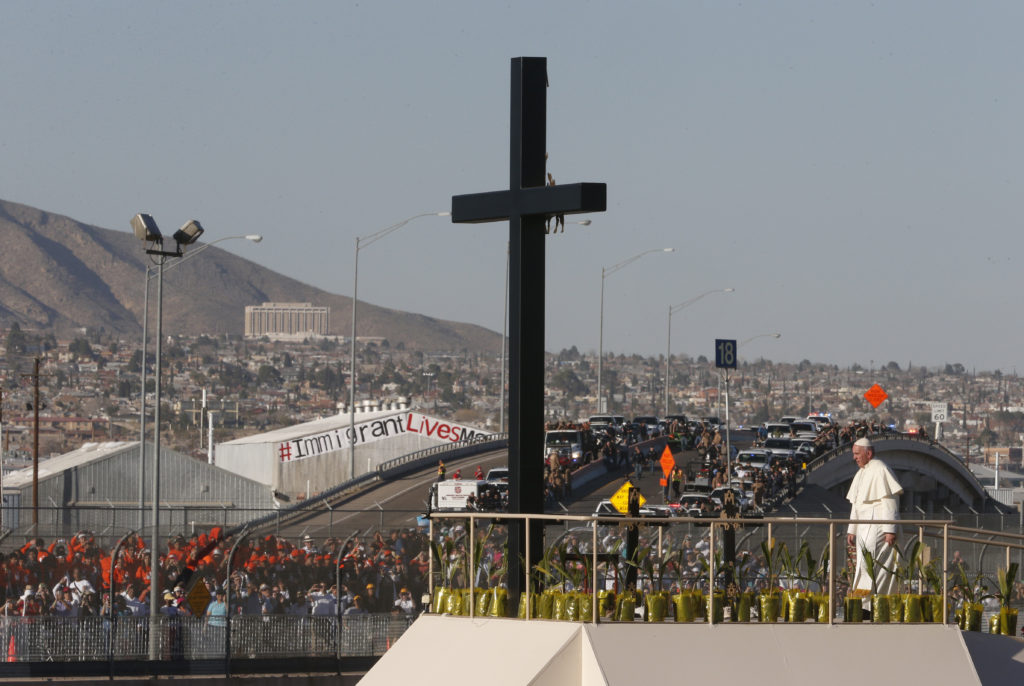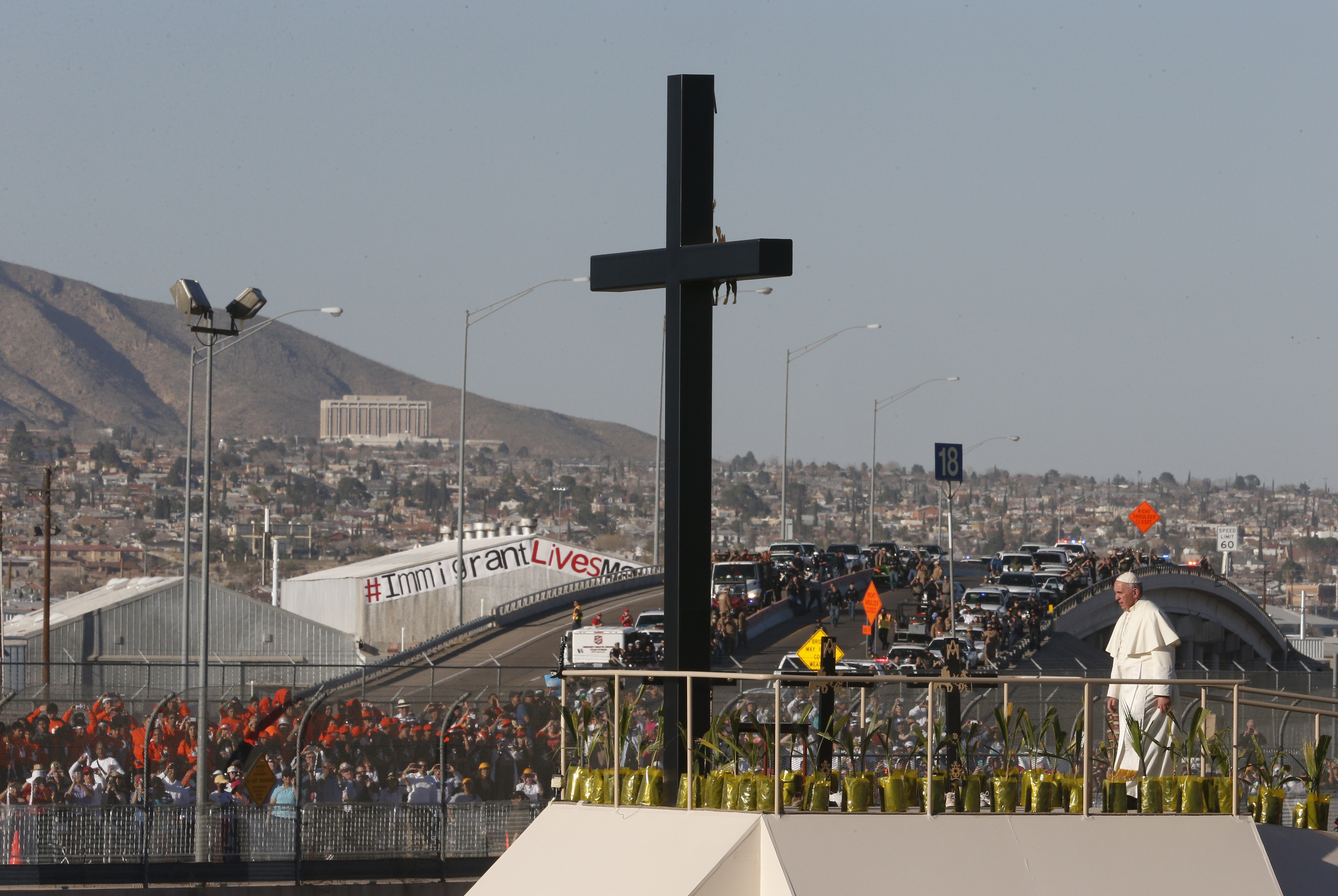
There was a lot of talk last month about Pope Francis’ foray into politics again when he said without naming names that anyone who would want to build walls to shut people out instead of welcoming them was not being Christian.
While celebrating Mass in Ciudad Juarez, right across the border from the United States, Pope Francis held morally culpable leaders on both sides of the fence, calling the “forced migration” of thousands of Central Americans a “human tragedy” and “humanitarian crisis.”
Without commenting on particular candidates, it brings up a couple of very important items for discussion. First of all, what is the pope’s role in the world and the world of American politics? But it also inspires a bigger conversation about human morality and our role as Catholics in serving and protecting it.
First of all let’s talk the pope and politics. In his very famous speech to Protestant ministers in 1960, then presidential candidate John F. Kennedy — who was suffering in the polls at the time because of fears he would be servile to the pope — stated unequivocally:
“I believe in an America that is officially neither Catholic, Protestant nor Jewish; where no public official either requests or accepts instructions on public policy from the pope, the National Council of Churches or any other ecclesiastical source; where no religious body seeks to impose its will directly or indirectly upon the general populace or the public acts of its officials; and where religious liberty is so indivisible that an act against one church is treated as an act against all.”
This was an important speech which did two things. First of all it totally turned the polls upside down and turned a Kennedy who was floundering because of condemnations of his religion into a successful populist candidate that identified with the religious plurality of America.
Secondly, it masterfully explained the difference between a politician, a political decision and religious ones. They should never be confused or combined by an American politician.
But the future president never said that he didn’t expect the pope to comment on any of those issues. He simply said that he would not let his policies be directed by him.
Understanding that requires one to understand that the pope occupies two very different but intertwined roles. He is a religious leader and a political one. He is technically the unquestioned monarch of the Vatican — a real and recognized city state — that has the right and responsibility to comment on world political issues just like any other. And as a religious leader he has the right and responsibility to comment on religious issues.
But both of those roles imbue him with a third responsibility to human morality. And that brings us to the matter the Holy Father was commenting on when he made his aforementioned comments — the immoral human crisis of immigration.
Whether it is the plight of millions of Mexican immigrants who have fled hunger, poverty and the dangers of cartel violence for a life of peace and prosperity in the United States or the matter of millions of immigrants flooding Europe to escape war, oppression, religious persecution, genocide and fanatical Muslim extremism, the issue of immigration is one of human pain and suffering. And the question is whether to turn away or to help.
In the short run, that may indeed also be a political issue. But ultimately that is a human issue, and the pope as well as anyone who considers themselves Christian, or human for that matter, has the right and responsibility to comment on it.
In fact it is arguable that the issue of human suffering and how to alleviate it is the trademark of Christian rights and responsibility. It is what Christ came to do first and foremost, and it is the example He left for us. I am delighted that our Holy Father is reminding us of that as he boldly stands up and states his views on the subject.
Now it’s our turn. Regardless of your political views, you cannot turn away in the face of human suffering of any kind. And hopefully Pope Francis has given you the courage to care.
Or in his own words: “Let us together ask our God for the gift of conversion, the gift of tears, let us ask him to give us open hearts … open to his call heard in the suffering faces of countless men and women.”
Now go forth in peace and love. Happy Easter!







